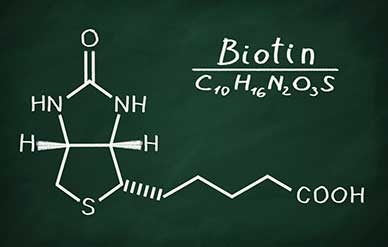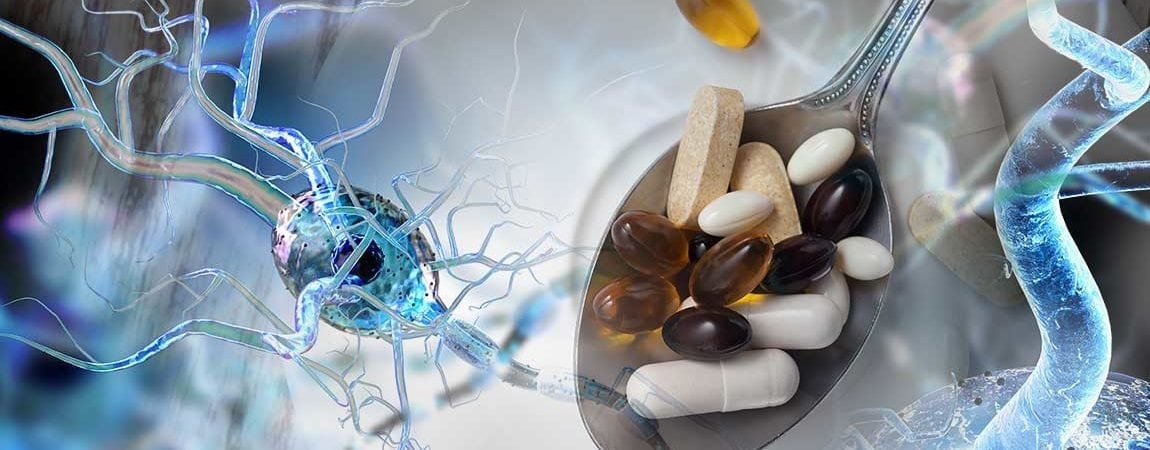Super-Doses of Biotin Found to Improve Certain Effects of Multiple Sclerosis
New research showing biotin benefits for multiple sclerosis suggests that this B vitamin may provide measurable health benefits for people suffering from this disease.
Multiple sclerosis, also known as MS, is a devastating disease and also one of the least understood medical problems. Although there are some leads as to why some people develop MS, we know very little about how to predict who will get it, much less how to treat it when it occurs. However, a new study suggests that taking a high dose of the B vitamin biotin may reduce the progression of the disease and improve a variety of symptoms.
Multiple Sclerosis: A Growing Threat
 Multiple sclerosis is a disease in which the autoimmune system attacks the white matter of the brain, replacing myelin with sclerosis, or scarring. Myelin is a fatty compound that insulates nerves and allows them to pass signals effectively, so this disease can be debilitating if it progresses. One of the scariest aspects of this disease is its unpredictable nature. We do not know who will develop it, and people who have the disease never know which areas of their brain may be attacked next.
Multiple sclerosis is a disease in which the autoimmune system attacks the white matter of the brain, replacing myelin with sclerosis, or scarring. Myelin is a fatty compound that insulates nerves and allows them to pass signals effectively, so this disease can be debilitating if it progresses. One of the scariest aspects of this disease is its unpredictable nature. We do not know who will develop it, and people who have the disease never know which areas of their brain may be attacked next.
Multiple sclerosis is believed to be caused by a combination of genetic and environmental factors, although the exact trigger remains unknown. It appears to be most common in young adults of Northern European ancestry, but other people can and often do develop the disease. Because we do not know the exact mechanism of the disease, treatment focuses on preventing relapses and improving function. According to a new study on the biotin benefits for multiple sclerosis, taking high doses of biotin may be a potential therapy.
What Is Biotin?
Biotin is also known as B7 and is one of the least-studied B vitamins. Many people take a biotin supplement to strengthen their hair and nails, but this vitamin appears to have many other health benefits as well. Like other B vitamins, it appears to act as a cofactor in cell metabolism to keep our cells producing the energy that they need for optimal health. In addition, it has a role in maintaining the nerves that help our brains to function optimally.
The United States Food and Nutrition Board sets recommended daily allowances for certain vitamins. However, there is no recommended daily allowance for biotin. The board says that 30 micrograms per day is adequate for adults. However, some people may benefit from taking more, including people with neurodegenerative diseases such as multiple sclerosis.
Biotin Benefits for Multiple Sclerosis
 Researchers divided people with multiple sclerosis into two groups. One received 300 micrograms of biotin a day—10 times the purported adequate amount. The other did not receive any biotin. At the end of a year of this therapy, the group that received the biotin ranged from unchanged to improved in vision, paralysis and other MS effects. The group that did not receive biotin ranged from unchanged to worsened symptoms. Adverse events and side effects were similar in the two groups, indicating that this super-dose of biotin did not have any unwanted consequences.
Researchers divided people with multiple sclerosis into two groups. One received 300 micrograms of biotin a day—10 times the purported adequate amount. The other did not receive any biotin. At the end of a year of this therapy, the group that received the biotin ranged from unchanged to improved in vision, paralysis and other MS effects. The group that did not receive biotin ranged from unchanged to worsened symptoms. Adverse events and side effects were similar in the two groups, indicating that this super-dose of biotin did not have any unwanted consequences.
How can a vitamin affect a disease process so intensely? Researchers believe that this is due to biotin's role as a cofactor for the enzyme class known as carboxylases. One particular carboxylase enzyme, called acetyl CoA carboxylase, is critically important in myelin synthesis. Without ample amounts of biotin, it simply cannot function. Having more biotin available appears to increase the rate of myelin synthesis, slowing the loss of myelin and the resulting loss of nerve function.
Are You Getting Enough Biotin?
Even if you do not have multiple sclerosis, taking biotin can help you have stronger nails, thicker hair and more energy. Taking in adequate amounts of this lesser-known B vitamin is essential to optimal health. While most people in the West have ample access to nutritious foods, many are not getting enough biotin because we do not eat many foods containing it. This nutrient is found in an odd array of foods that are not common in our diets, such as liver, Swiss chard and brewer's yeast. However, nuts and egg yolks are both good sources of biotin and readily available to most people. In addition, there are many biotin supplements available that you can take if you feel you are in danger of a deficiency.
Good nutrition is the basis of good health in so many ways. Doctors increasingly consider good nutrition one of the most important aspects of preventive care. However, this research on biotin benefits for multiple sclerosis suggests that nutrition may be not just a preventative measure but an actual treatment for disease. If you suspect you are not getting enough of this B vitamin, consider eating more biotin-rich foods or taking a supplement to support your hair, fingernails and brain for a lifetime.





